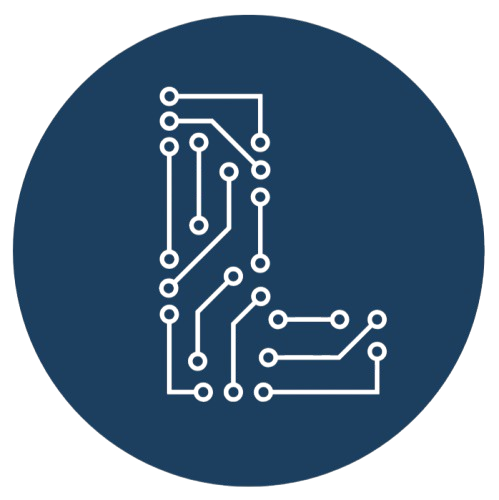Analytical customer relationship management software offers advanced analytics and reports to help businesses make data-based decisions for improved business operations and customer experience. Choosing the right analytical CRM system to match your organization’s operations and goals can bring several benefits, like increased productivity and data integrity.
What is analytical CRM software?
An analytical CRM is a type of CRM software that collects, organizes, and stores internal and external data. It then uses that data to generate comprehensive reports and dashboards for the user to turn into actionable insights. This data is collected throughout the entire CRM cycle, from lead generation to post-sale and everything in between. Converting valuable data into digestible insights allows businesses to better strategize nurturing techniques and ultimately retain customers.
What are the benefits of analytical CRM?
An analytical CRM provides all the general CRM features and benefits you’d expect from this type of software. But beyond serving as a hub for customer data, a major benefit of an analytical CRM is all the ways the data helps users make impactful business decisions.
Here are four distinct benefits of an analytical CRM:
- Data integrity: Make sure all the information generated from customer data is accurate, complete, and valid.
- Increased productivity: Spend more time interfacing with customers instead of tediously pulling data and manually turning it into comprehensive reports.
- Boosted resource allocation: Understand precisely where resources are best allocated depending on season, quarter, or year.
- Enhanced customer satisfaction: After identifying where you historically lose customers, provide more personalized and appropriate support in stages of the selling cycle.
Analytical CRM use cases
Medium to large teams or organizations
Medium to large businesses can greatly benefit from advanced CRM analytics. When a business is scaling up and anticipating more growth, it is critical to have secure and regular data mining and recording. For smaller companies or startups, users might have more bandwidth to manage manual reports or less complex workflows. However, in the case of large companies and enterprises with vast quantities of dense data, an analytical CRM can efficiently do all that heavy lifting in the back end.
Service-based industries
Service-based industries like banking, real estate, or e-commerce can greatly benefit from an analytical CRM. These industries rely heavily on insights into consumer trends and forecasts, which can be gleaned from CRM data. The same can be said for industries that require a project management CRM, specifically one with real-time reporting and activity tracking.
Businesses looking to leverage AI
AI CRM software typically offers generative AI content, AI assistants, and AI-powered analytics such as forecasting and performance reports. But beyond generating reports with just a click, these technical CRMs can also make insightful suggestions based on the generated reports, such as the best time to cold call.
Types of data analysis in CRM
Sales cycle length
A standout example of CRM data analysis is measuring sales cycle length. The sales cycle length is the exact amount of time a customer takes to be identified and nurtured into a closed sale. The goal is to have as short a sales cycle as possible so leads are less likely to back out or get stale. By keeping an eye on the average sales length, ruts or delays in sales can be identified and solved quickly.
Data warehousing
Data warehousing is when software stores and analyzes enterprise data sourced from multiple sources—including integrations. It allows the CRM system to act as a central repository and hub for all the consolidated data. This is critical for businesses to have a single source of truth with efficient input and output.
Activity tracking
Activity tracking monitors all sales activities and tasks completed by sales reps. This can include sales calls, emails sent, customer support tickets completed, and new leads identified. As a subcategory of performance management, this same monitoring can be done on an individual scale as well as team and department performance.
Lead scoring and segmentation
With a clearly defined ideal customer profile (ICP), businesses can configure the CRM to automatically assign scores to incoming leads ranging from low to high quality. Once a lead is identified as high quality, it signals sales representatives to start nurturing immediately to capitalize on the high probability of a sale.
Sales forecasting
Analytical CRMs can use all historical data on profits, closed vs. lost deals, and churn rates to generate predictive analytics for potential sales revenue and wins. These CRM systems include internal information, consumer trends, and competitor analysis. Having a reliable sales forecast helps decision-makers plan quarterly initiatives or major marketing campaigns with confidence.
SEE: Download our detailed guide to CRM features and solutions.
Types of CRM software
Even though some generalized CRM providers can offer more than one type of CRM, most fall into the analytical, collaborative, or operational category.
- Analytical: Focus on collecting, warehousing, and analyzing gathered data.
- Collaborative: Emphasize cross-departmental collaboration and supporting internal and external communication.
- Operational: Help manage the day-to-day operations of a business, from marketing campaigns to post-sale tasks.
Top analytical CRM tools
Beyond the data warehousing, mining, and forecasting an analytical CRM can provide, there are some other factors to consider when selecting the best analytical CRM for your business. I recommend familiarizing yourself with which integrations the CRM offers, how its pricing structure works, and how that pricing accommodates your allocated budget.
Here’s a snapshot of the best CRM software with advanced analytical functionality:
Zoho CRM
View accurate forecasts that show AI predictions of future sales. Zoho CRM offers a free version with paid plans starting at $14 per user, per month.
Dynamics 365
Receive AI-powered suggestions for sales actions based on goals, performance, and customer history. Plans start at $65 per user, per month.
ClickUp
Set milestones that signify and track individual, team, or department progress toward goals. It’s a free starting price with premium tiers starting at $7 per user, per month.
Should you choose analytical CRM software?
Analytical CRMs transform dense data for users to understand how customer relationships impact the successes and deficits of the business. Choosing analytical CRM systems over more collaborative or operational CRM software should depend on your business’s needs and goals, budget, industry, and even technical expertise and experience with any CRM. Ultimately, following the recommended best practices when choosing and implementing any CRM system will help you get the most value out of a customer management tool.



